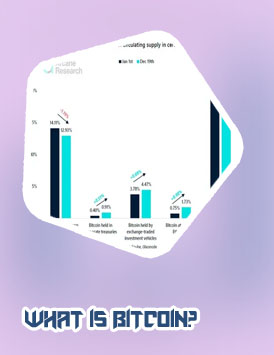Bitcoin one percent controls circulating coins
How to buy Dogecoin

Bitcoin has been criticized for having a small group of individuals who control a large portion of the circulating supply, leading to concerns about centralization and inequality within the cryptocurrency ecosystem. In order to address this issue, it is important to explore different perspectives and solutions proposed by experts in the field. The following three articles offer insights and strategies to tackle the problem of the one percent controlling a majority of Bitcoin.
Decentralizing Bitcoin: Strategies for Reducing Concentration of Wealth

Today we have the pleasure of discussing the important topic of decentralizing Bitcoin and reducing the concentration of wealth within the cryptocurrency space. This is a crucial issue that many in the global community are concerned about, as the unequal distribution of wealth can have far-reaching implications.
One key strategy that has been proposed to address this issue is the promotion of decentralization within the Bitcoin network. By spreading out the control and ownership of Bitcoin among a larger and more diverse group of individuals, we can help to mitigate the concentration of wealth that currently exists within the system. This can help to make Bitcoin more inclusive and accessible to a wider range of people, ultimately leading to a more equitable distribution of wealth.
This article provides valuable insights into the various strategies that can be employed to decentralize Bitcoin and reduce the concentration of wealth within the cryptocurrency space. By implementing these strategies, we can work towards creating a more fair and just financial system that benefits everyone, not just a select few. It is essential that we continue to explore these issues and work towards finding solutions that promote greater equality and inclusivity within the world of cryptocurrency.
Exploring the Impact of Whales on Bitcoin's Market Dynamics
Bitcoin's market dynamics have long been a subject of intrigue for investors and analysts alike. However, a recent study delves into a unique perspective on the impact of whales on this volatile market. Whales, in the context of cryptocurrency, refer to individuals or entities holding large amounts of Bitcoin, capable of influencing the market through their transactions.
The study explores how these whales strategically navigate the market to maximize their profits, often leading to significant price fluctuations. By analyzing the transaction patterns of these large holders, researchers have shed light on the intricate relationship between whales and Bitcoin's market dynamics.
One key finding of the study is the potential for whales to manipulate prices through coordinated buying or selling activities. This manipulation can create artificial market trends, leading to both opportunities and risks for smaller investors. Understanding the behavior of whales is crucial for predicting market movements and making informed investment decisions.
To better grasp the implications of this study, it is essential to consider the role of market sentiment in influencing whale behavior. Additionally, exploring regulatory measures to prevent market manipulation by whales could help ensure a fair and transparent trading environment for all participants. Lastly, further research on the long-term effects of whale activities on Bitcoin's price stability could provide valuable insights for market observers.
Governance Models for Ensuring Fair Distribution of Bitcoin Wealth
Bitcoin, the world's first decentralized digital currency, has garnered significant attention in recent years. As the value of Bitcoin continues to rise, questions surrounding the fair distribution of wealth have come to the forefront. Governance models play a crucial role in ensuring that Bitcoin wealth is distributed equitably among users.
One governance model that has gained traction is the proof-of-stake (PoS) algorithm. Unlike the proof-of-work (PoW) algorithm, which requires users to solve complex mathematical problems to validate transactions and earn rewards, PoS allows users to validate transactions based on the number of coins they hold. This model incentivizes users to hold onto their coins, thus promoting wealth distribution.
Another governance model that promotes fair distribution of Bitcoin wealth is the concept of community governance. By allowing users to have a say in decision-making processes, community governance ensures that the interests of all stakeholders are taken into account. This model fosters transparency and inclusivity, leading to a more equitable distribution of wealth.
In addition, implementing wealth redistribution mechanisms such as taxation and wealth caps can help address wealth inequality within the Bitcoin ecosystem. By redistributing wealth from the wealthy to the less fortunate, these mechanisms promote a more balanced distribution of resources.
Pages
- 1
- 2
- 3
- 4
- 5
- 6
- 7
- 8
- 9
- …
- next ›
- last »
